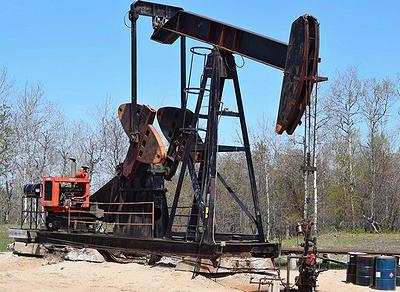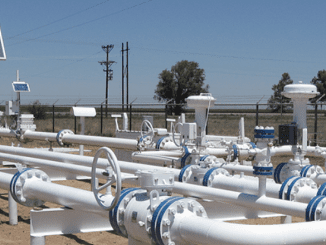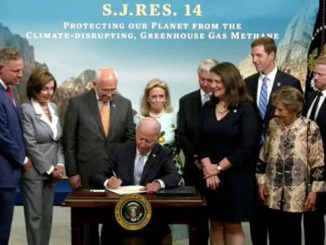
WASHINGTON, DC, December 9, 2020 (ENS) – The U.S. Environmental Protection Agency today finalized a procedural rule that the agency says will “improve the rulemaking process under the Clean Air Act by establishing requirements to ensure consistent, high-quality analyses of benefits and costs are provided to the public for significant rules.”
The EPA says this final rule codifies best practices for benefit-cost analysis in rulemaking and will provide clarity for states, local communities, industry, and other stakeholders regarding EPA’s rulemaking.
At first glance, this appears to be just an innocuous, dry, procedural rule, but critics say the Trump EPA’s so-called “cost-benefit” rule will make it more difficult for incoming administrations to implement new Clean Air Act regulations guidelines to protect air quality in the future.
EPA Administrator Andrew Wheeler announced the new rule at an event with the conservative Heritage Foundation, which supported the change.
“Up to now there have been no regulations to hold us, the EPA, accountable to a standardized process and guarantee the public can now see how those calculations informed decisions,” Wheeler said.

During the public comment period, the cost-benefit rule received favorable comments from a wide range of energy groups whose clients would benefit from a slowed-down regulatory process. They include organizations such as the Western Energy Alliance which represents 300 independent small companies engaged in all aspects of what the WEA calls “environmentally responsible exploration and production of oil and natural gas across the West.”
WEA President Kathleen Sgamma wrote the Alliance’s August 3 supportive comment on the proposed rule, finalized today, telling EPA Administrator Andrew Wheeler, “The general equilibrium approach with a clear definition of the term ‘social cost’ is an important aspect of the proposed rule.”
“Historically, CAA rulemaking has defined social cost by compliance cost alone, while ignoring the broader economic impact of a rule,” she wrote. “New environmental regulations may affect a wide variety of companies and individuals both within and outside a regulated industry, particularly one as complex and foundational as the oil and natural gas industry.
“Associated costs may result in lost jobs, lost tax revenue, and financial hardship for those who depend on affordable energy. By quantifying social cost as compliance costs alone, BCAs [benefit-cost analyses] often fail to capture the full impact of rules on the broader public. The general equilibrium approach rectifies this imbalance by factoring in general welfare costs,” Sgamma wrote.
Some very large organizations lobbied in support of the cost-benefit rule such as The American Road & Transportation Builders Association and Exelon Corporation, the largest regulated electric utility and also the largest operator of nuclear power plants in the United States and the largest non-governmental operator of nuclear power plants in the world.
EPA Administrator Wheeler’s former client Growth Energy also lobbied in support of the cost-benefit rule.
But to some critics, such as Chris Saeger, spokesperson for Accountable.US, a nonpartisan watchdog group that exposes corruption across all levels of government, the newly finalized cost-benefit rule looks like a sell-out.
“Donald Trump must be held accountable for selling out Americans’ air quality to big oil companies and fossil fuel lobbyists during a public health emergency,” Saeger said today.
Emily Davis, senior attorney in the Climate & Clean Energy Program at the nonprofit Natural Resources Defense Council, said, “This is an egregious 11th-hour attempt to handcuff the incoming administration and undercut the benefits of clean air – in the worst days of a global health crisis. Our country is struggling to address racial injustice and a deadly pandemic magnified by pollution, which all heavily impact Black, Latino and low-income people.”
“The Biden administration should deep-six this dishonest and dangerous rule,” Davis said, “and allow EPA to re-embrace its core mission, which is to protect public health and our environment. We’ll use every tool, and look forward to working with the Biden team, to ensure that healthier future for all.”
Saeger, too, called on President-elect Joe Biden to reverse the rule after he takes office on January 20, 2021.
“To restore our nation,” Saeger said, “the Biden administration must raise standards for the air we breathe by rejecting these irresponsible policies that reward the special interests the Trump administration used to work for.”
Copyright Environment News Service (ENS) 2020. All rights reserved.
© 2020, Environment News Service. All rights reserved. Content may be quoted only with proper attribution and a direct link to the original article. Full reproduction is prohibited.



